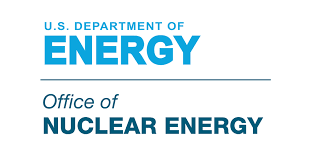Nuclear Reactors 571 - The U.S. Department Of Energy Is Funding New Projects Under The ARPA - E - Part 3 of 3 Parts
Part 3 of 3 Parts (Please read Part 2)
Project 7
The Ultra Safe Nuclear Corporation in Seattle, WA will receive $2,350,000 for their work on Technology Enabling Zero-EPZ Micro Modular Reactors.
The purpose of this project is to develop advanced technologies to increase the power density of gas-cooled reactors which will allow them to be smaller than the current designs allow. The researchers are looking for a new high-performance moderator which will allow the creation of a compact reactors with enhanced safety features. Moderators slow down neutrons so that they can create the fission reaction in the reactor. If the size of reactors can be reduced, it will allow greater versatility in deployment as well as reducing construction costs and time. These are important features for smaller modular reactors that need to be constructed where heat and power are required.
Project 8
The University of Illinois at Urbana-Champaign in Champaign, IL will receive $774,879 for their work on Enabling Load Following Capability in the Transatomic Power MSR.
The purpose of this project is the development of a fuel processing system for molten salt reactors that will allow these reactors to reduce their power output when there is reduced power demand. In order to allow this load following, the researchers will carry out simulations to understand how to remove the unwanted fission by-products that slow the fission reaction rate and reduce the power generation of the reactor. They hope to design a process for reprocessing molten-salt fuel which would remove a major barrier in the commercialization of molten-salt reactors.
Project 9
Westinghouse Electric Company, LLC in Cranberry Township, PA will receive $5,000,000 for their work on Self-regulating, Solid Core Block “SCB” for an Inherently Safe Heat Pipe Reactor.
The purpose of this project is the development of a self-regulating “solid core block” that utilizes solid materials to regulate the fission reaction rate in the reactor. Currently, such moderation is achieved by bulk flow of liquids or complex components with moving parts. This innovation will allow a reactor to be safely shut down without requiring external controls, external power sources, or operator intervention. This will allow highly autonomous safe operation. The researchers will carry out modeling and simulation to demonstrate the self-regulating ability of SCBs. They will also conduct additional tests to validate their modeling and simulation and to confirm that such components can be manufactured.
Project 10
Yellowstone Energy in Knoxville, TN will receive $2,599,185 for their work on a Reactivity Control Device for Advanced Reactors.
The purpose of this project is the development of a new reactor control technology that will enhance passive safety and reduce costs for molten-salt reactors. Materials will be embedded in control rods which will vaporize at high temperatures. The vapor that they produce will capture neutrons and slow the fission reaction rate without the need for external controls. The researchers will utilize simulation tools to determine the effectiveness of the proposed control device. They will also carry out a techno-economic analysis at the level of a nuclear power plant to determine whether or not their proposed technology will be cost effective.
